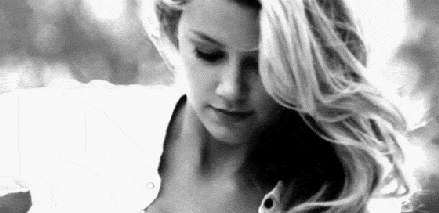![]()

For the past few months, I have been pondering the question: Why do I watch so many horror movies? I can’t attribute my interest to any of the explanations Piece of Cape offers up: the thrill rush, the gore, the “sport.” In reviewing The Descent I expressed an appreciation for the survivability aspect, my admiration for and aspiration to emulate those who rise to every occasion and manage to survive. But on a more fundamental level, I think it boils down to this:
More than any other genre, horror movies will always keep you guessing.
When you love movies and television, you will inevitably start to see the patterns filmmakers fall back on. You spot the red herrings in the opening scene, gleefully or cynically identify the villain before a crime has been committed or predict the couple’s happy ending before a romance has even begun.In many cases this works, because the journey is more important than the destination. I don’t expect a surprise ending in which John McLane turns out to be in cahoots with the bad guy, or Rocky throws in the towel. But occasionally, I do want to be surprised. And I want to have to ask why. Why does a character “snap” or lash out? Why do the people around him or her react the way they do? What implications does that have for our understanding of social psychology and education? What do the frameworks of these stories say about the prejudices and biases of the filmmaker and audience? I might not be able to articulate or grasp the answers to those questions, but I always appreciate when a movie poses them.
I recently learned about All The Boys Love Mandy Lane, a little-known film that still hasn’t reached US audiences, from Head in a Vice. I was drawn in by the excellent spoiler-free review and tracked it down (an anomaly for me; typically I head to wikipedia right off the bat!). This movie demonstrates perfectly what is great about the horror genre. If you’re mindful of spoiler warnings and go into a horror movie with no preconceived notions, the possibilities are endless: Is there a supernatural explanation? A time-loop? Is someone we thought was dead actually alive? Is an angry relative seeking revenge? Is the most obvious explanation the correct one or the most convoluted?
Mystery aside, Mandy Lane is a well-executed, quietly engrossing film. It follows a beautiful, untouchable young siren who is the object of every boy’s desire — so much so that one boy, in a drunken attempt to impress her, plummets to his death in the opening sequence. Later, when the popular kids convince her to let loose and spend a weekend partying in the middle of nowhere, the group is followed by Mandy’s most determined – and homicidal – admirer.
The cast fit naturally into their undemanding roles, their ad-libs resulting in some inane but very real teen chatter, with a particular – but never preachy – focus on the body image issues and self-esteem assassination that takes place between women. The clever soundtrack is an excellent complement to the movie, juxtaposing the lightheartedness of overplayed pop songs with their darker meanings, which mirror the themes running through the plot (e.g. Our Lips Are Sealed, Sealed With a Kiss). But more importantly, Mandy Lane plays with the trope of the perfect, innocent girl as the victim-turned-survivor. Despite appearances, our heroine is not Jamie Lee Curtis in Halloween, Neve Campbell in Scream, Jennifer Love Hewitt in I Know What You Did Last Summer or Heather Langenkamp in Nightmare on Elm Street.

It is initially accepted as a standard of the genre that Mandy will be morally irreproachable and widely admired, turning down her suitors with humble dignity. But we come to find that this shrinking violet is less than pleased about being incessantly targeted and objectified, for a number of reasons that slowly reveal themselves over the course of the film. And the filmmakers take men to task for lamenting over and pushing the boundaries of the “friend zone,” a demeaning expression that suggests a man who is nice to a woman deserves more than friendship as a reward, and that her personal preferences are irrelevant.
Mandy Lane may not be a groundbreaking movie, but in quietly drawing attention to a pervasive notion and turning a number of horror cliches on their heads, it is just different enough to be entirely refreshing.


Thanks for the shout out.
Thanks for the kind words and the link. Glad you liked it 🙂